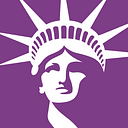How California’s College Student Right to Access Act Will Break Down Barriers to Abortion Care
SB 24 will drastically reduce the unique barriers to reproductive healthcare that university students face.
Last month, Governor Gavin Newsom fulfilled his campaign promise and signed the College Student Right to Access Act (SB 24), into law in California. SB 24 is the first law of its kind, expanding reproductive healthcare access by guaranteeing medication abortion access at all of California’s public university campus health centers through private funding.
Given over two million students attend public universities in California, this bill is a major win for increasing young people’s access to abortion care. Governor Newsom proudly stated at the signing: “As other states and the federal government go backward, restricting reproductive freedom, in California we are moving forward, expanding access and reaffirming a woman’s right to choose.” The governor is absolutely spot-on: California’s College Student Right to Access Act will drastically reduce the unique barriers to reproductive healthcare that university students face.
Making Access a Reality for Students
On average, 1,038 students are forced to travel off of California’s public campuses each month to receive abortion care, and they spend an average of 38 minutes each way to reach an abortion provider. Because medication abortion requires at least two in-person appointments, these travel times can really add up. Making four one-way trips can easily turn into two and a half hours of travel. Some students face even longer trips, traveling up to six hours to the closest provider.
Despite abortion being legal and funded by the state’s public health insurance options, research shows that abortion care is still widely inaccessible for college students in California. In addition to financial constraints, students face unique barriers to accessing care. Over two-thirds of the University of California (UC) students and one-third of California State University (CSU) students do not have a car and rely on public transportation to reach off-campus reproductive healthcare. By passing SB 24, California is moving to support students and prioritizing these major barriers to access, particularly transportation time and costs. This is especially pertinent to medication abortion because it can only be taken within the first 10 weeks of pregnancy.
Students are busy. The distance and cost barriers associated with accessing abortion care are compounded by college students’ packed schedules. Only 15% of the closest providers to campuses are open on weekends or non-traditional business hours. To make matters worse, the average clinic has over a week-long wait for a first appointment. Providing care on campus breaks down these obstacles, and independent research has already indicated that campus health centers have the capacity.
Helping Marginalized Communities Access Care
Student access is, of course, also contingent on personal circumstances and unique identities. Fifty-one percent of CSU and UC students are low-income, while 41% of UC students are food insecure. Given the financial burdens far too many students already face, these low-income students are further disadvantaged when attempting to reach and afford abortion care. Students with physical disabilities, too, can experience increased costs and systemic difficulties in finding accessible transportation. Students who lack health insurance or have university insurance may not have the tools to navigate finding care or their in-network providers may be too far away. Students who are undocumented may fear to access care off-campus. Some students may even struggle to receive abortion care off-campus because they fear that their family could find out from their insurance company.
One of the first steps in addressing these intersecting barriers is through providing medication abortion on campus in health centers. Health centers are easy to get to for students, already within their networks, and can address the specific barriers that students often encounter.
What This Means for Abortion Access: California Leading the Way
Accessing abortion care shouldn’t be an obstacle course. SB 24 represents a major step forward for California students and for reproductive freedom. SB 24 acknowledges the implications that student’s identities have on access and works to remedy these hurdles for students. It allows for campus health centers to fulfill the needs of students within their own campus communities.
The passage of this historic bill comes on the heels of tireless work from NARAL Pro-Choice California and more than 100 allied organizations that advocated on the ground for college student access. From lobby days to countless calls, gathering petition signatures, and tabling, NARAL Pro-Choice California members really stepped up to make this bill a reality.
As the Trump-Pence administration and anti-choice state legislators across the country continue their attacks on Roe, we must follow the lead of California and its pro-choice champions. With reproductive freedom under threat, it’s more important than ever that we look for opportunities in the states to protect or expand reproductive freedom, including abortion access, in our own communities. That’s why we’re doubling down to fend off anti-choice threats and strengthen pro-choice legislation in the states.
→ You can learn more about what you can do to fight back in your own state at RealityofRoe.org.
